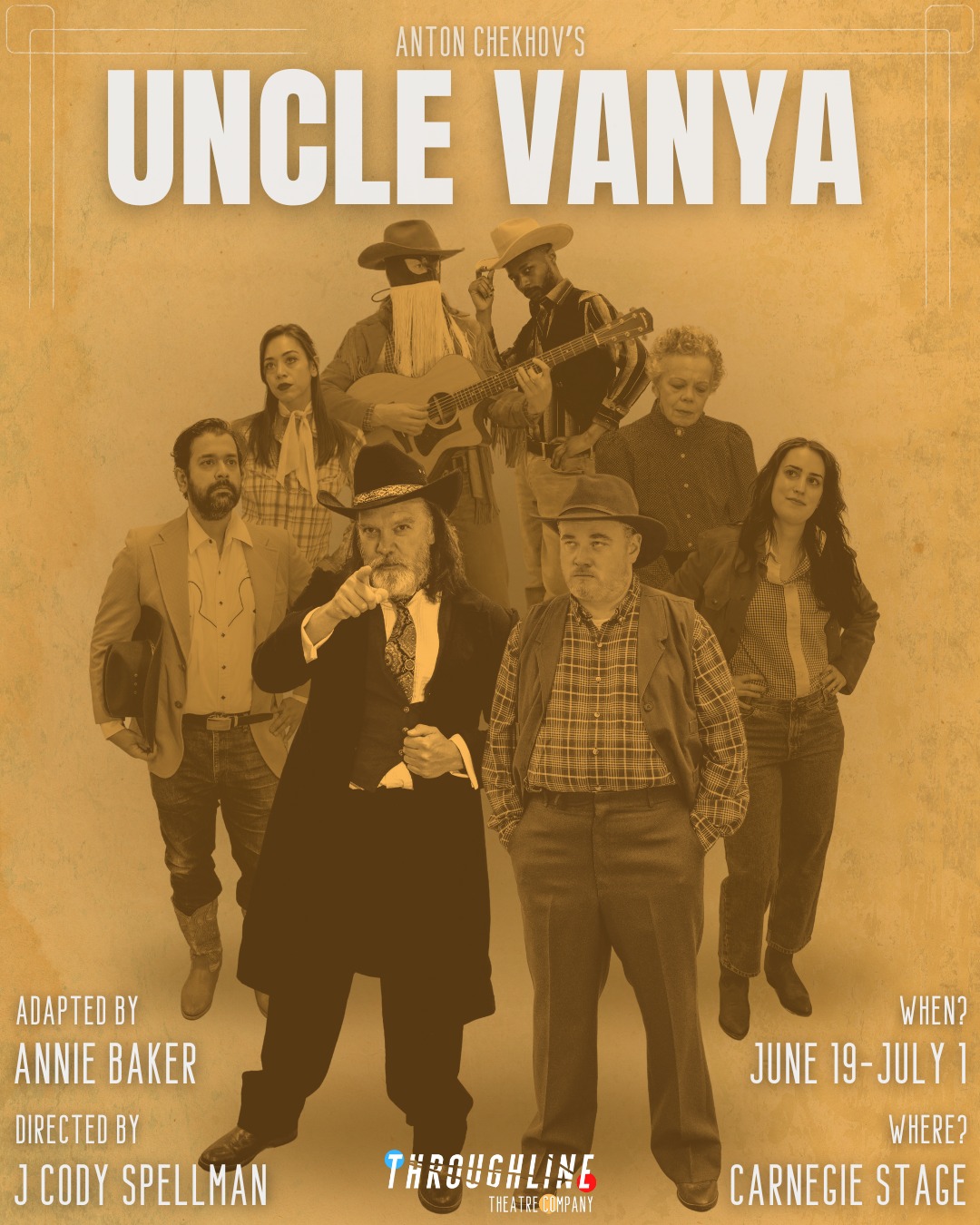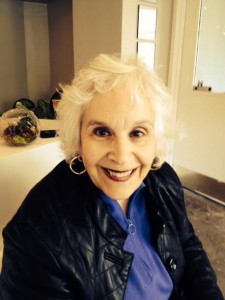by Claire DeMarco
The story line in this production of “Uncle Vanya” is the same as are the characters and location in Russia of Anton Chekhov’s play. Annie Baker’s adaptation of Chekhov’s classic now occurs in the present with the characters and surroundings in American-like rural attire and staging.
Vanya (Mike McBurney) lives in the country with his niece, Sonya (Marisa Postava). They both take care of the rural property. Although she technically owns the property through her deceased mother, her father Serebreykov (Rick Dutrow) controls it. Serebreykov lives in the city with his second and much younger wife, Yelena (Zoe Abuyuan).
Astrov (Maher Hoque), neighbor and friend of Vanya’s is educated, overworked and obsessed with forestry and the environment. He’s determined that he will never love anyone but he’s concerned that he will not be remembered after he’s gone.
Vanya complains and reflects constantly about his life – he’s wasted it, he’s lonely, he’s stuck in the country.
Sonya’s not happy either but she is resigned to her fortunes, believing the only relief from her misery is death.
Tensions are compounded when Serebreykov and Yelena make their infrequent visit to the country. Their presence seems to heighten the resentment Vanya has for the life they are living and the life that he isn’t.
No one appears entirely happy but everyone is in love. Unfortunately, everyone is in love with someone who doesn’t love them.
Note: There are some occasions due to the staging when the actors’ backs are to the audience and dialogue is not always clear.
McBurney is so believable as Vanya that even though he whines a great deal about his failures and life in general, he is likeable. He’s able to pull off some sarcastic remarks that are funny even though the play is often considered tragic. He uses great facial expressions to emphasize his emotional state.
Dutrow takes us through the many phases of Serebreykov, from moaning about his failing health to his angry outbursts. In between these extreme bursts of emotion, Dutrow’s character is calm, in charge and authoritative.
Hoque is effective as the always depressed Astrov whose main interest and pursuit beyond doctoring and drinking is his concern with the climate and general environment. Hoque’s performance is consistent and strong.
Postava is convincing as a gentle, quiet soul who when pushed speaks out. She is effective in standing up to Vanya when he insists that he alone handles all the workload.
Dressed to impress, Abuyuan stands out as the selfish, younger second wife. She shows her gentle side as the confidante trying to help Sonya pursue her love interest.
The set has a Western theme with a barn-like backdrop and a country-style table and bench, wagon wheel leaning in the corner of the stage, a cowboy hat plopped on a coat rack and other fixtures that reinforce the American-like western look. Costumes reflect the surroundings with many of the characters wearing cowboy boots and ranch style garments. Visitors from the city wear classic attire.
Most people consider Chekhov plays as tragic and there is a large portion of tragedy in them. But scattered throughout is a dash of comedy, highlighted perhaps in this production by the time and American-like rural environment in which it is presented.
Check out this adaptation of “Uncle Vanya.”
-CED
“Uncle Vanya” runs from June 19 – July 1 and is presented by Throughline Theatre Company at Carnegie Stage, 25 W. Main Street, Carnegie, PA 15106. For more information, click here.

